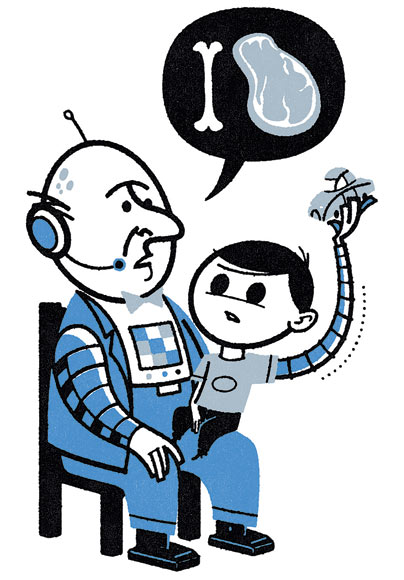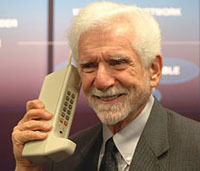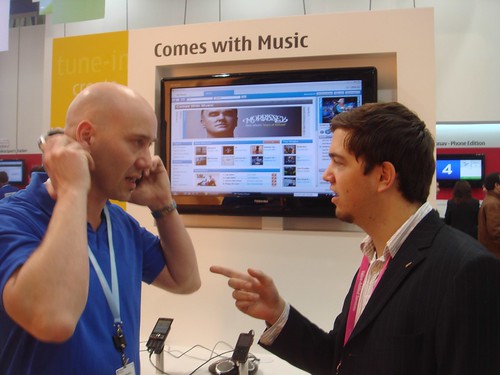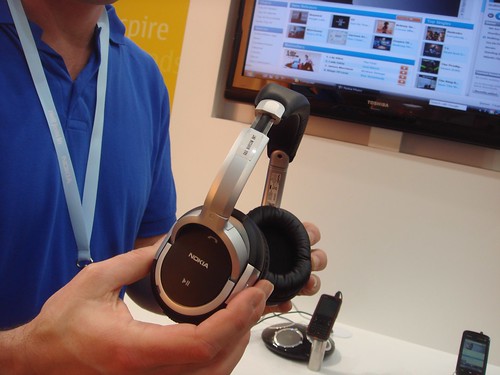
- Image via CrunchBase
Google Crushes Its Complements
Just was reading about Google Maps, specifically their turn-by-turn, and its impact on the maps market.
As many people know, there are 2 main players in the map market: Tele Atlas and NavTeq. Google licensed both of them for Google Maps for years. While they licensed, they also sent cars all around the nation gathering their own data. These two guys, Tele Atlas and NavTeq, were the only game in town. TomTom, the leading portable GPS device maker, wanted to control their own destiny and agreed to buy Tele Atlas for US$2.7 billion. And Nokia, worried that they would lose access to the coveted map agreed to buy NavTeq for a cool $8.1 billion.
All was good until Google dropped a bomb. About six weeks ago, they went independent and didn’t rely on either for their map data. And then about a month ago they announced their own turn-by-turn navigation would be available in the Android OS. Now anybody from BMW to GM to Samsung can provide turn-by-turn by simply using Google’s OS.
The big losers here are RIM and iPhone. They either have to not allow that access or pay a large royalty. And Windows Mobile and Symbian are in an even more difficult situation as paying to embed this data could be more than the license fee they get from handset manufacturers. This all assumes, of course, that users really demand this feature. If they do, Google’s really in the catbird seat. 
People will complain that this is incredibly anti-competitive. That Google is using it’s money making machine to unfairly compete in the map market. Well, the story is even worse than that. To get carriers to use Android, Google offers a cut on the search revenue that the phones produce. So not only is Android free but it’s actually paying providers to use it. Some people are calling it “less than free.” Google will go beyond cell phones with this strategy. Any netbook manufacturer (Dell, Sony, etc.) will get a cut of search revenue by building on Android or Chrome instead of Windows or Linux. It’s tough to compete with “less than free.”
It makes you think of the world of complements. Chris Dixon discusses Google and how its complement are the web browser and the OS. The best thing you can do as a company is drive your complements to become commodities. Well there’s no better way than driving their prices to be below zero. Kudos Google, I’m impressed.

 o way of not only knowing what hair color or muscle mass they kid would have and some patents didn’t even know if they were having a boy or a girl
o way of not only knowing what hair color or muscle mass they kid would have and some patents didn’t even know if they were having a boy or a girl
![Reblog this post [with Zemanta]](http://img.zemanta.com/reblog_c.png?x-id=a62ba9e5-f12f-4405-8c87-6e62dce1a5ec)

![Reblog this post [with Zemanta]](http://img.zemanta.com/reblog_c.png?x-id=83093f87-0a38-44c2-8dfc-9756592fa3f0)
 One thing that is interesting is how Apple is has high priced machines in their Macbook Pro’s and Air devices and “lowend” machines in their iPhone. Whatever market you’re at, Apple will have the slickest machine. Microsoft, on the other hand, has less slick highend machines, and netbooks on the lowend. Personally, i like Apple’s direction more but it’d be even better if they had a tablet or smaller sized laptop that was an iPhone/laptop hybrid for $400. I think the regular PC starts to disappear and all sales are Netbook sales. Why would anyone pay $1000 when they can get a decently powerful machine for $200?
One thing that is interesting is how Apple is has high priced machines in their Macbook Pro’s and Air devices and “lowend” machines in their iPhone. Whatever market you’re at, Apple will have the slickest machine. Microsoft, on the other hand, has less slick highend machines, and netbooks on the lowend. Personally, i like Apple’s direction more but it’d be even better if they had a tablet or smaller sized laptop that was an iPhone/laptop hybrid for $400. I think the regular PC starts to disappear and all sales are Netbook sales. Why would anyone pay $1000 when they can get a decently powerful machine for $200?
![Reblog this post [with Zemanta]](http://img.zemanta.com/reblog_e.png?x-id=6c60dcd7-c99e-407f-8042-28e24d2c6911)



![Reblog this post [with Zemanta]](http://img.zemanta.com/reblog_e.png?x-id=2cbbdce3-b179-49e6-8381-9ef372a76b30)

 k this suite is a good metaphor for the company itself. Internet 1.0
k this suite is a good metaphor for the company itself. Internet 1.0
![Reblog this post [with Zemanta]](http://img.zemanta.com/reblog_e.png?x-id=30cbffb6-adbd-44e1-a33d-1460013cf19c)
